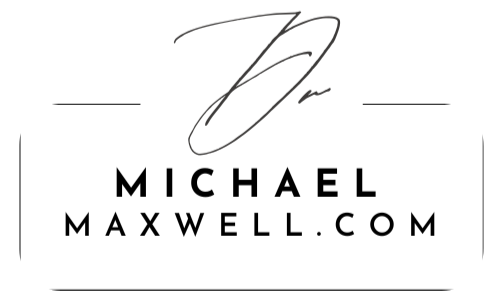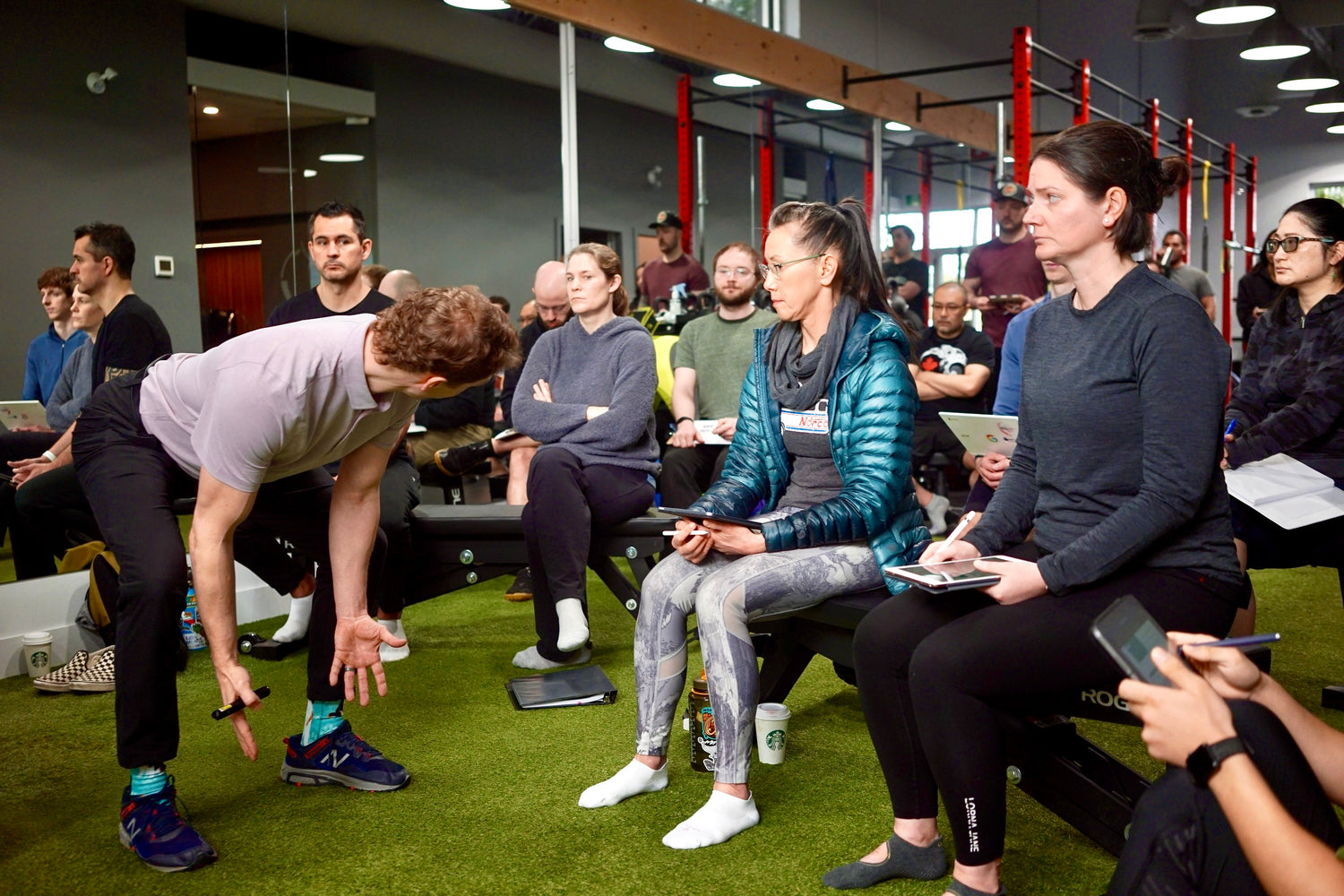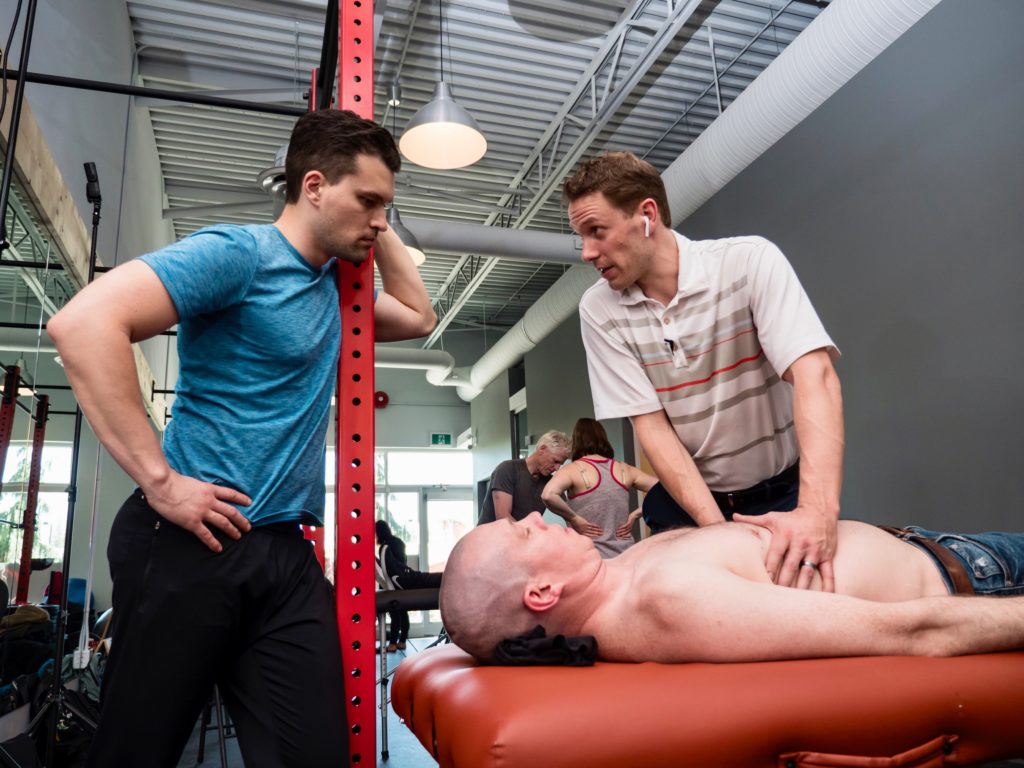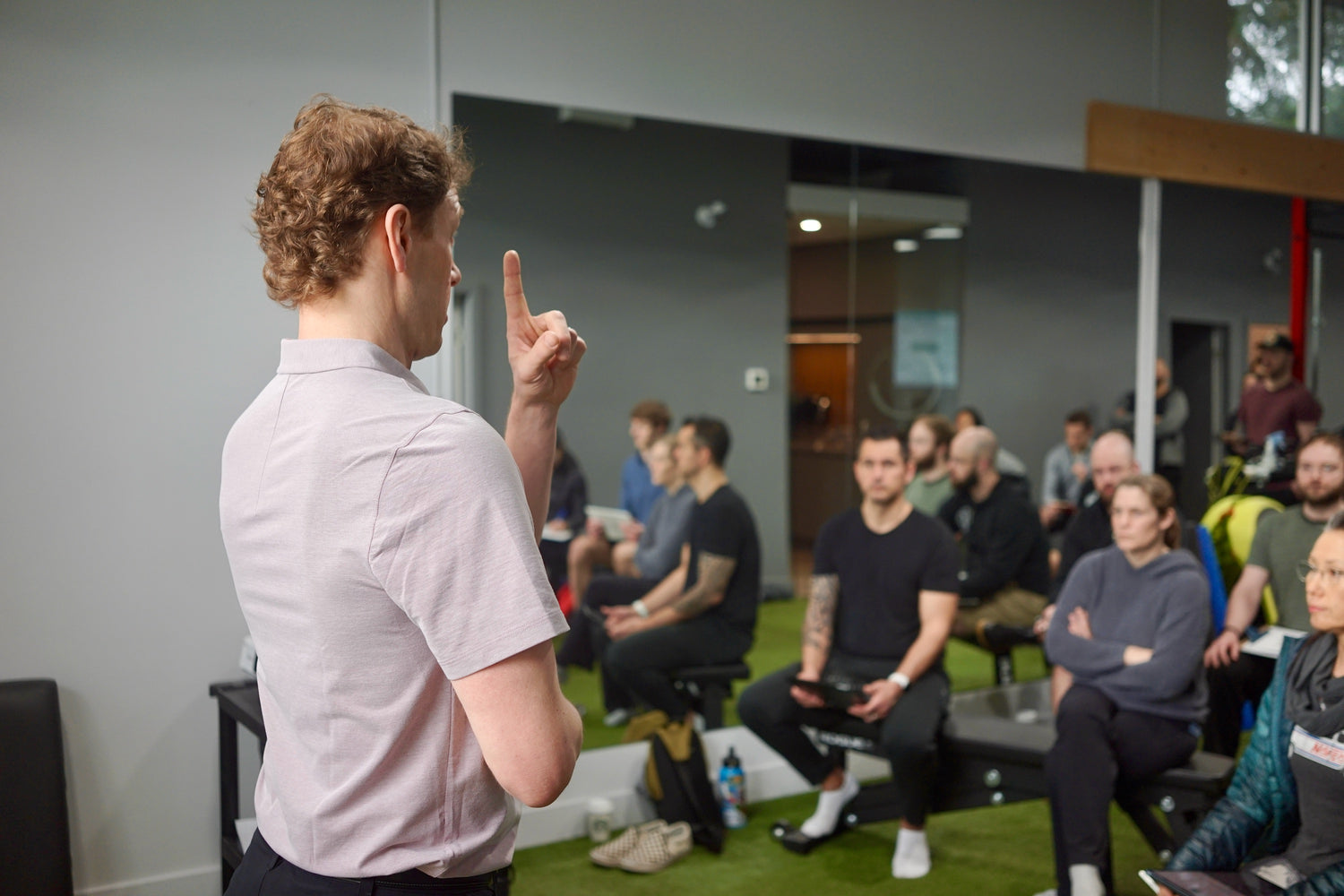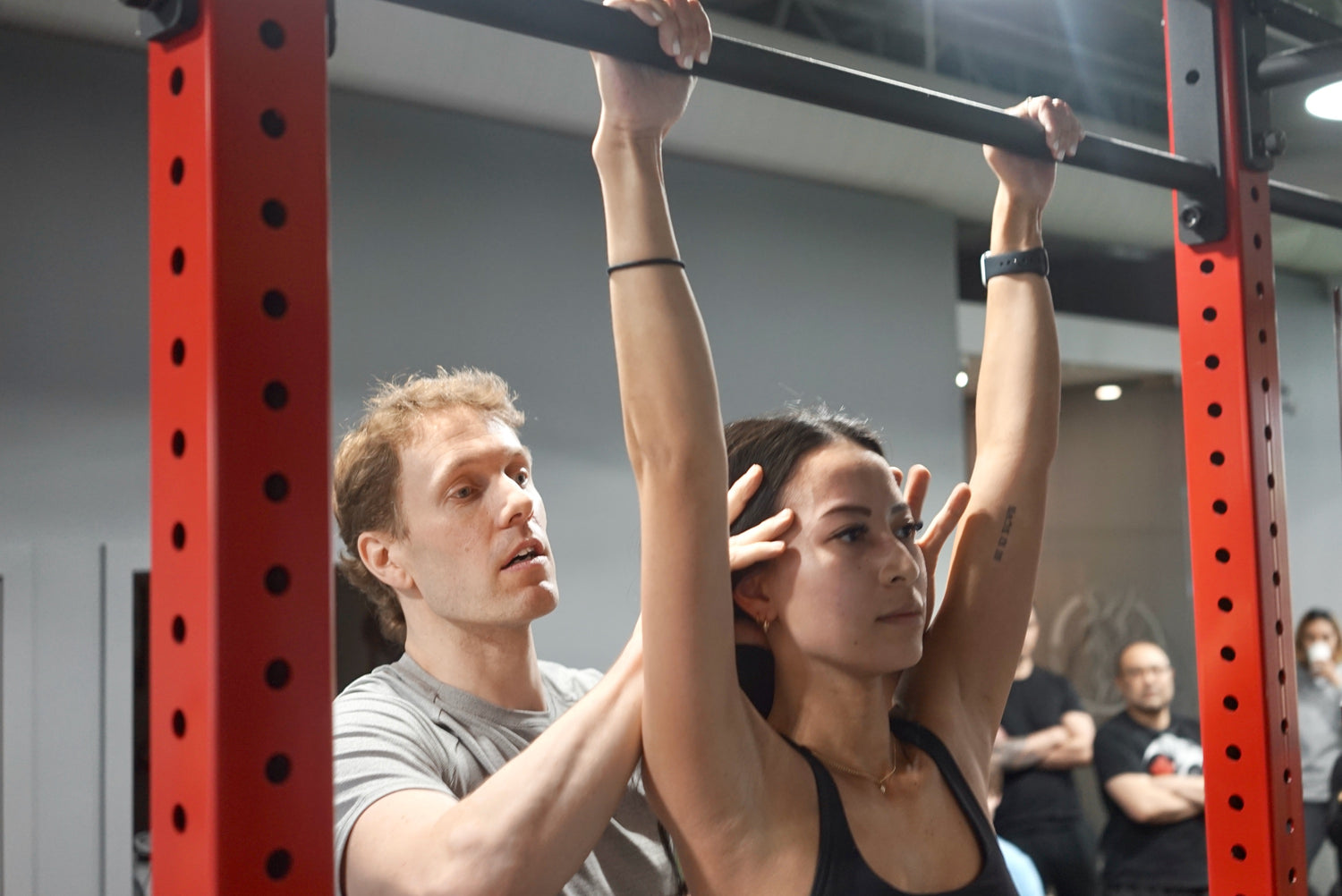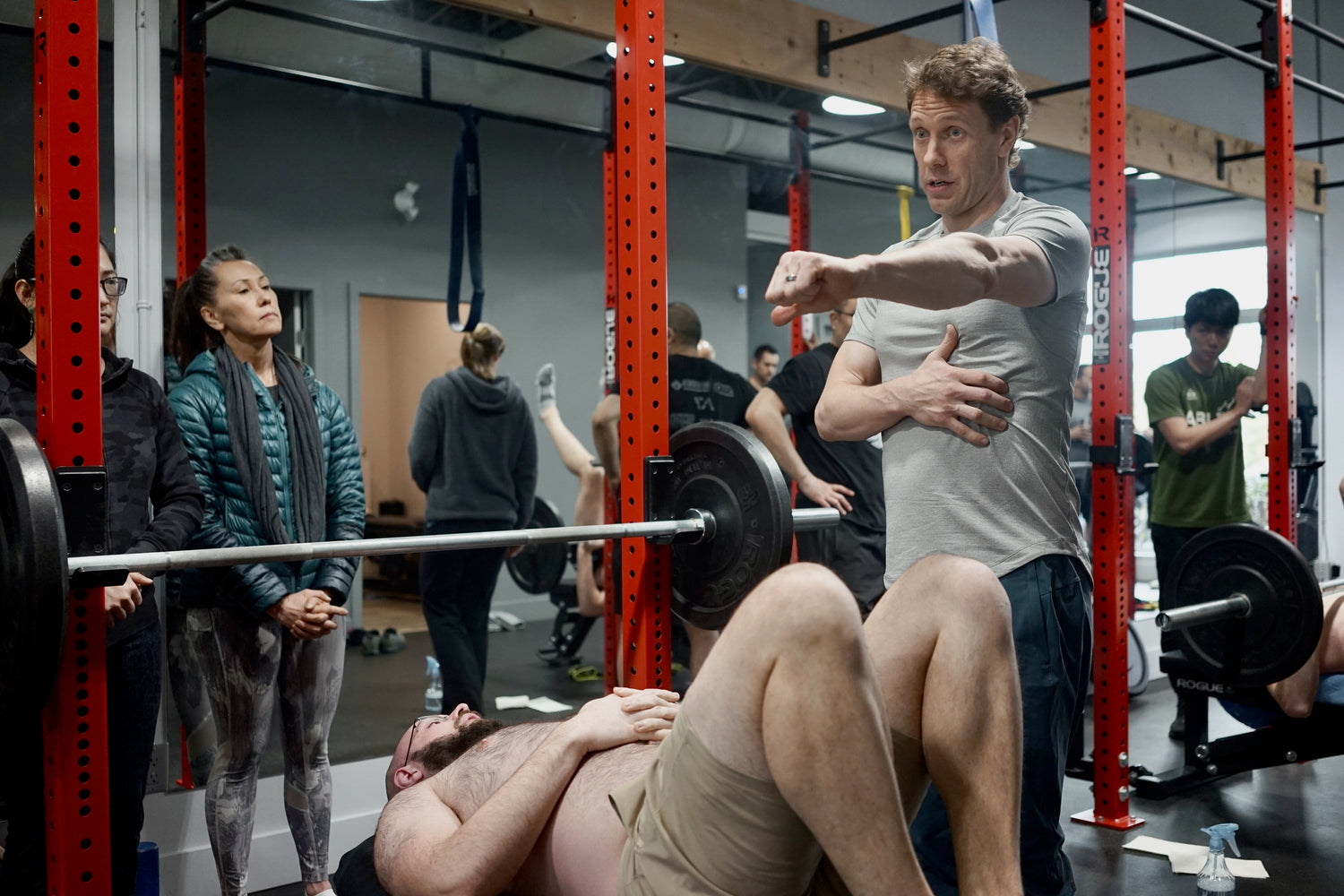Description
DNS C applies the foundational knowledge and skills learned in the A and B courses and provides advanced integration of developmental positions and active exercise, and applies DNS principles and exercises to common clinical conditions, including assessment and DNS exercise applications for shoulder pain, hip pain, pelvic pain, and scoliosis.
Course Highlights
DNS Clinical Courses are 3-day, 21 hour courses, featuring a strong practical components, with a 65:35 practical-theory ratio.
DNS is a revolutionary perspective on evaluating and rehabilitating postural function that will greatly enhance any clinical rehabilitation or strength and conditioning program.
DNS B applies the fundamentals of sagittal stabilization and advances participants into the differentiated - ipsilateral and contralateral patterns.
What You Will Learn
- Introduce advanced assessment methods – the integrated stabilizing system, locomotor stereotypes, respiratory stereotype.
- Describe the kinesiology of muscle chains involved in locomotion: stepping forward and supporting function.
- Discuss and workshop assessment and treatment of the pelvic girdle and hip joint: phylogenetic and ontogenetic aspects, anatomical parameters from developmental perspective, the most common pathological conditions – femoroacetabular impingement syndrome, arthritis, DNS assessment and treatment procedures.
- Discuss and workshop assessment and treatment of the shoulder girdle: phylogenetic and ontogenetic aspects, anatomical parameters from developmental perspective, DNS assessment and treatment in shoulder girdle disorders - hemiplegic shoulder, frozen shoulder, impingement syndrome, SLAP lesion.
- Discuss and workshop assessment and treatment of scoliosis: definition and classification, ontogenetic aspects leading to scoliotic development, risk factors, spine control in motor development, assessment of infants and adults with scoliosis and body asymmetry, bracing and DNS treatment positions and strategies
- Discuss and workshop assessment and treatment of pelvic floor issues and women’s health: pelvic floor muscle function from developmental perspective; associated kinesiology between diaphragm and pelvic floor; typical postural disturbances, functional trigger point chains, joint dysfunction and hypersensitive zones in gynaecological diagnoses; DNS assessment and rehabilitation for stress incontinence, anorectal dysfunction, amenorrhea and dysmenorrhea, functional sterility, pelvic organ prolapse and pelvic pain syndromes, vertebral-visceral relationships; rehabilitation for pregnant females
- Cover general DNS self-treatment advanced techniques
- Provide more complex clinical management explanation for clinicians to better integrate more advanced DNS protocols into regular practice.
- Establish individual goals (DNS understanding & skills) for students to be optimally prepared for the next level of training (Course “D” in Prague)
Course Outline
Hour 1: DNS – review of the most important DNS principles – three levels of motor control; cortical function and body awareness training.
Hour 2: Practical workshop: DNS ontogenetic flow – sequencing of developmental postures.
Hour 3 - 5: Practical workshop:
– sequencing of developmental postures
– analysis of postural-locomotion movement patterns, signs of functional decentration and the most frequent mistakes.
Hour 6: Application of the DNS principles for sport performance and fitness exercise.
Hour 7-10: DNS concept for functional diagnosis and treatment of shoulder girdle pain.
Hour 10-13: DNS management of patients with scoliosis; demonstration of assessment and DNS treatment of scoliotic patients, including patient education.
Hour 14-17: DNS management of patients with pelvic pain; demonstration of assessment and DNS treatment of pelvic pain patients, including patient education.
Hour 18-21: DNS management of patients with hip pain; demonstration of assessment and DNS treatment of hip pain patients, including patient education.
Course Instructors
Certification
DNS is more than a course; it's a system of understanding human movement - posture and function - through a series of courses and a certification process. Eligibility requirements for the DNS Course D include:
- Completion of A – C courses and at least two additional DNS workshops. The additional DNS workshops may include repeated A-C courses, DNS skills review sessions, DNS special workshops e.g sports performance, neurological disorders, pediatrics, etc.
- Receipt of Certificates of Achievement in Courses A, B & C
- Application for Course D must take place no earlier than three years and no later than seven years, following completion of Course A.
- Demonstrate adequate handling skills that are evaluated by the respective instructors during workshop practice sessions.
